Three elections to administrative bodies were held in the Koper district before 1954: the first in 1945, the second in 1950 and the third in 1952, following the abolition of the wider Istrian district. The most significant was the election of 1950. The election was called for 16 April and there were three parties on the ballot: the Slovene-Italian Popular Front (SILF), the Italian Socialist Party of the FTT and a Christian Socialist grouping. The election was won by the SILF with more than 88 per cent of the votes. It received least support in areas with an Italian population. The largest percentage of spoiled ballots also came from these areas.
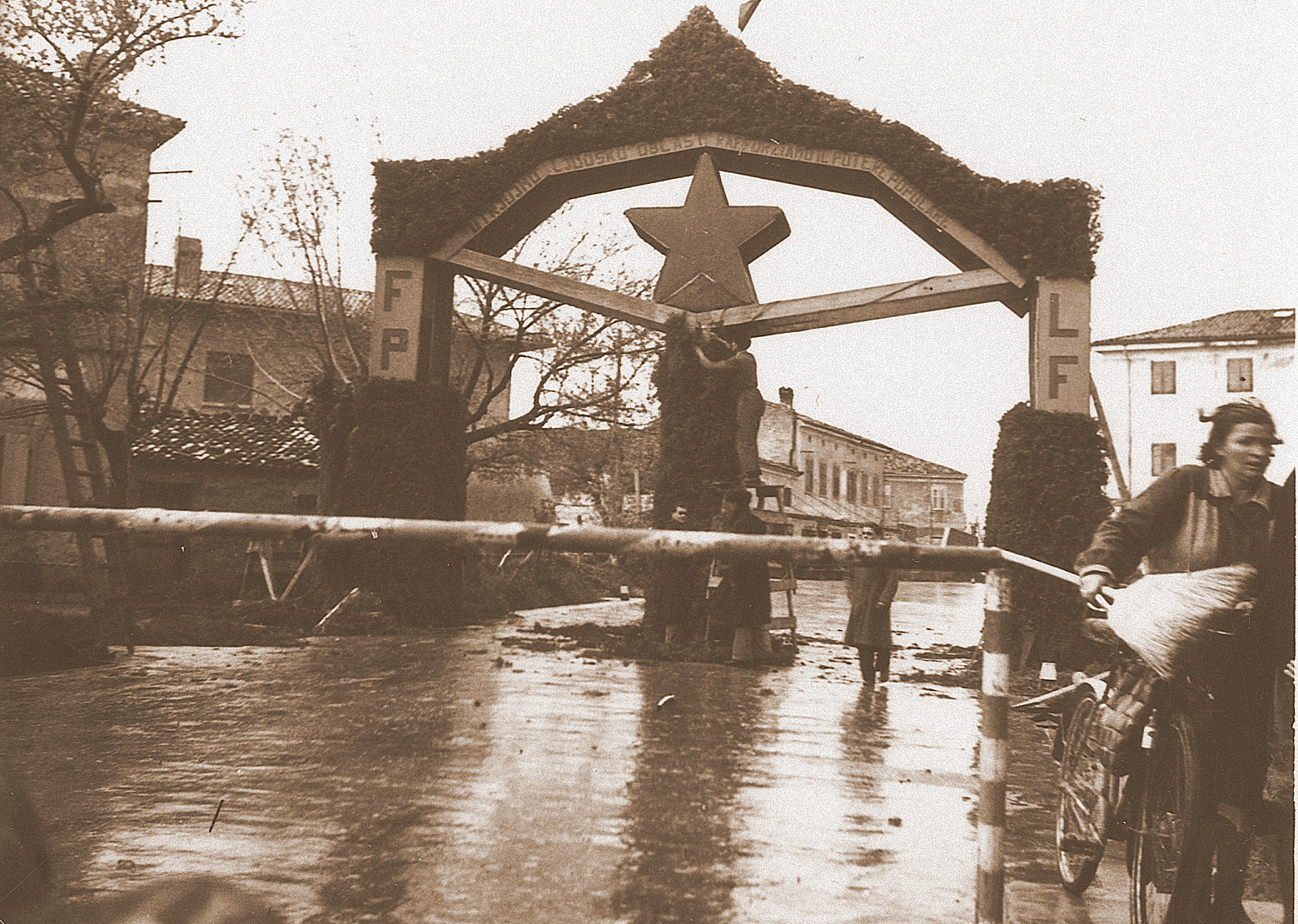 The importance of the administrative elections in 1950 was demonstrated by the triumphal arches put up in towns and villages: Škofije, Izola, Čežarji.
The importance of the administrative elections in 1950 was demonstrated by the triumphal arches put up in towns and villages: Škofije, Izola, Čežarji.
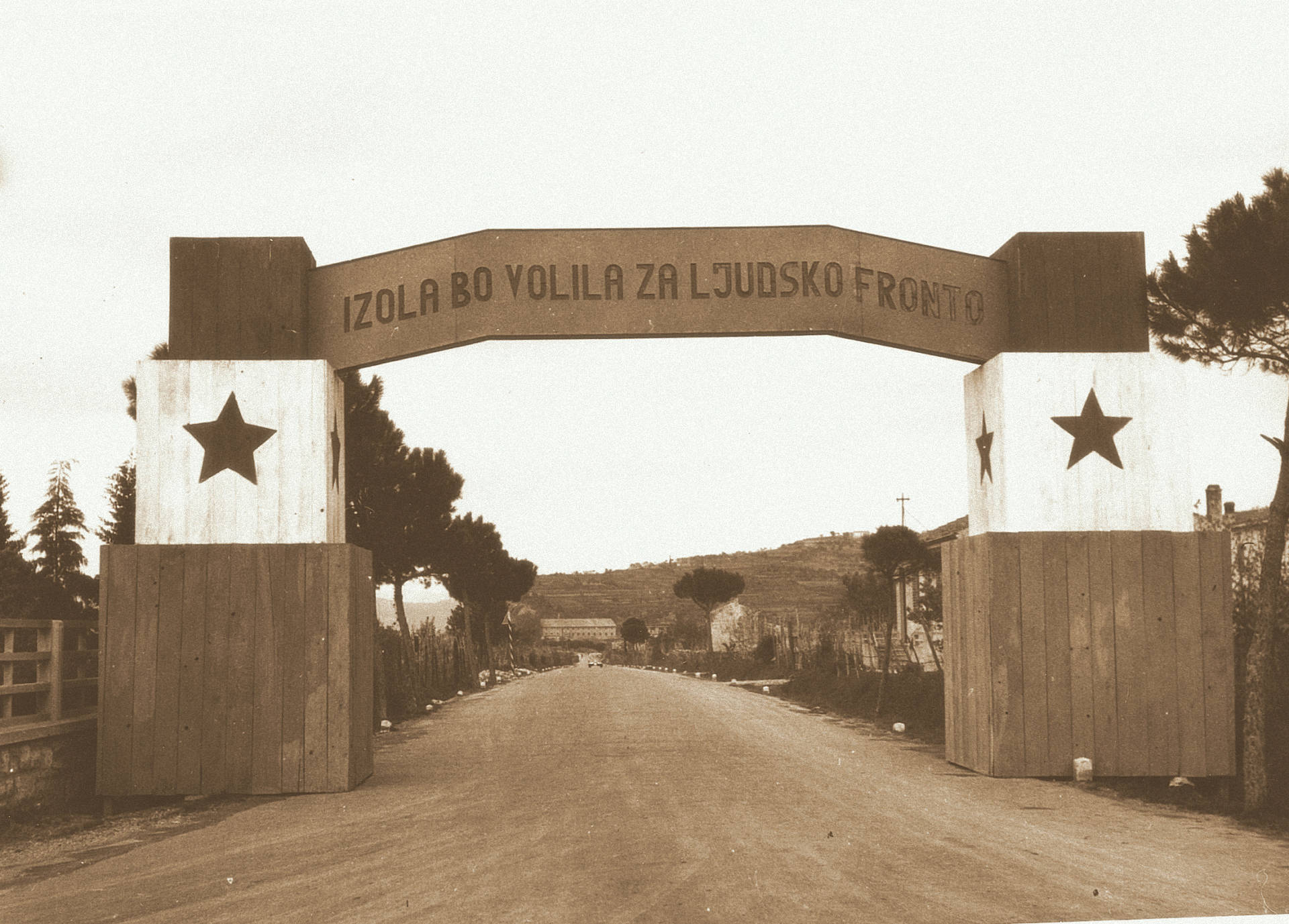 The importance of the administrative elections in 1950 was demonstrated by the triumphal arches put up in towns and villages: Škofije, Izola, Čežarji.
The importance of the administrative elections in 1950 was demonstrated by the triumphal arches put up in towns and villages: Škofije, Izola, Čežarji.
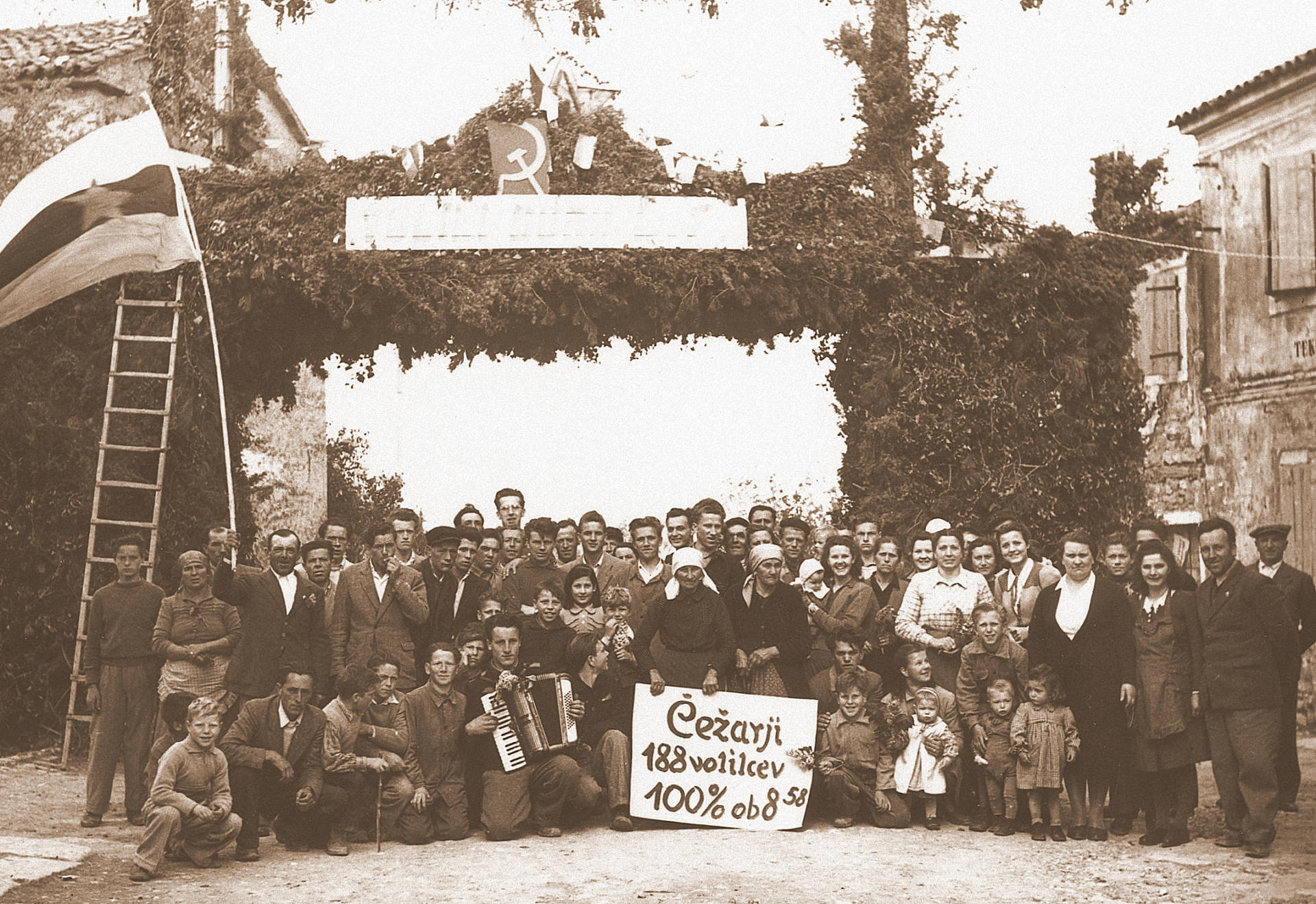 The importance of the administrative elections in 1950 was demonstrated by the triumphal arches put up in towns and villages: Škofije, Izola, Čežarji.
The importance of the administrative elections in 1950 was demonstrated by the triumphal arches put up in towns and villages: Škofije, Izola, Čežarji.
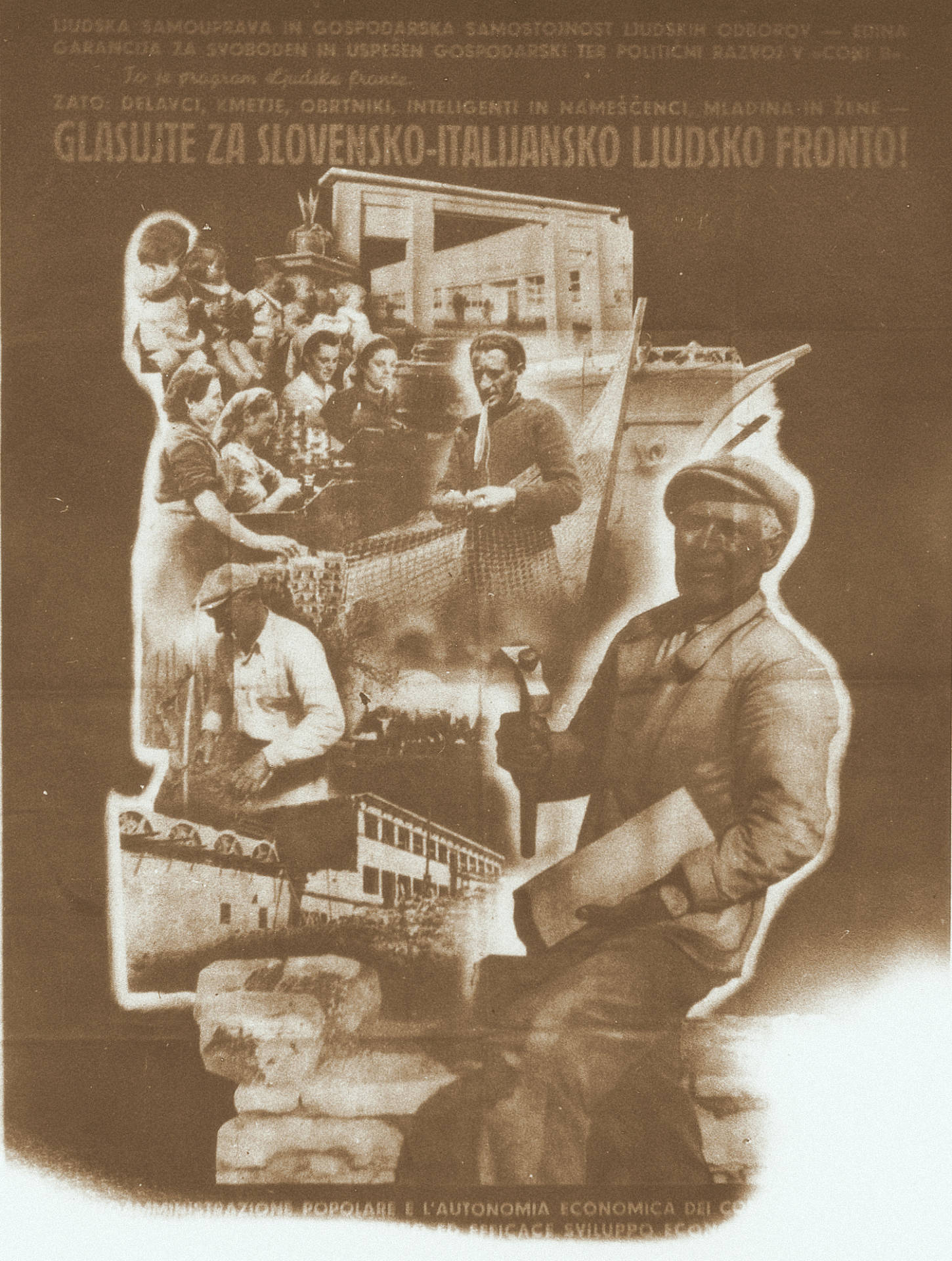
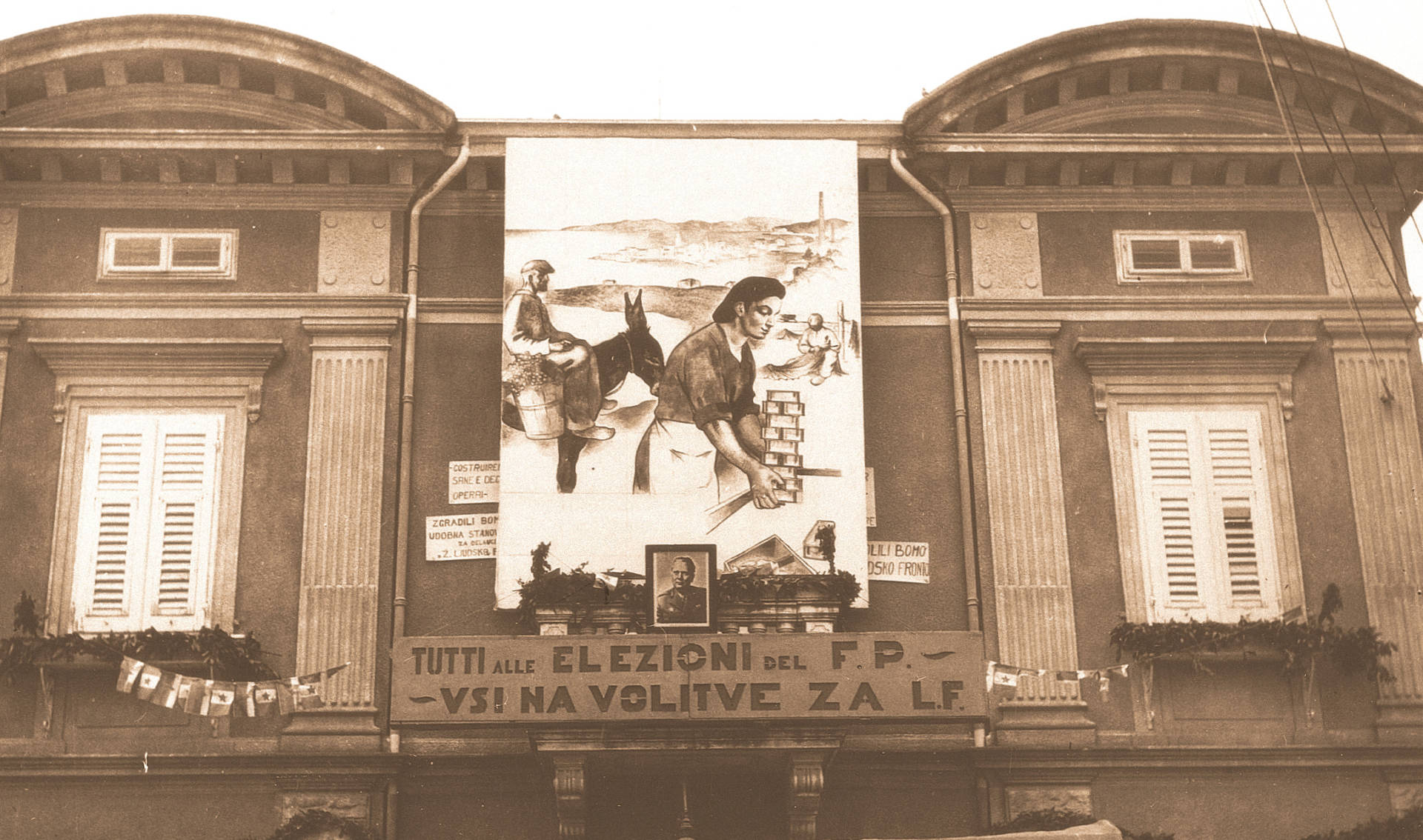
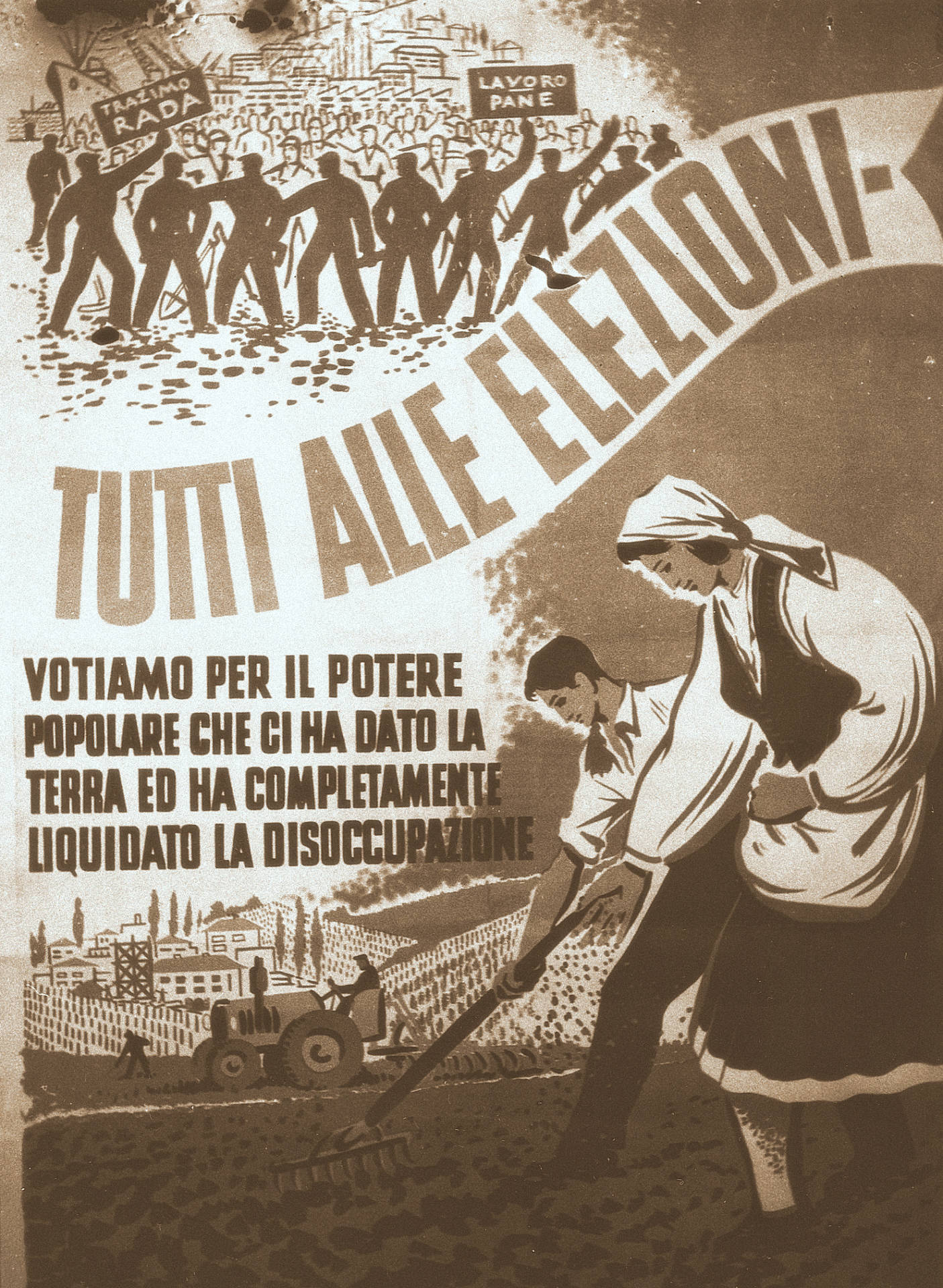
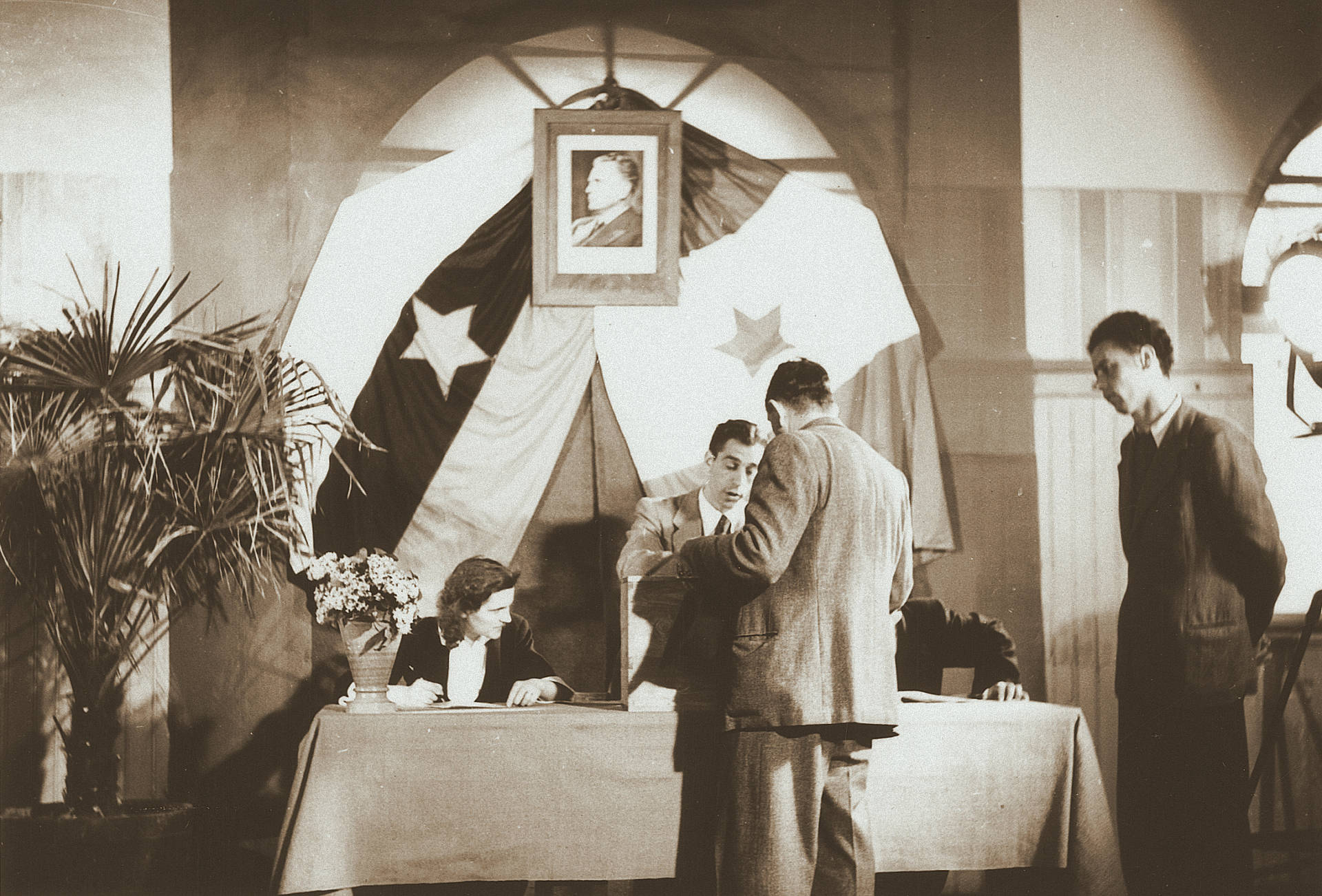 Koper, 16 April 1950.
Koper, 16 April 1950.
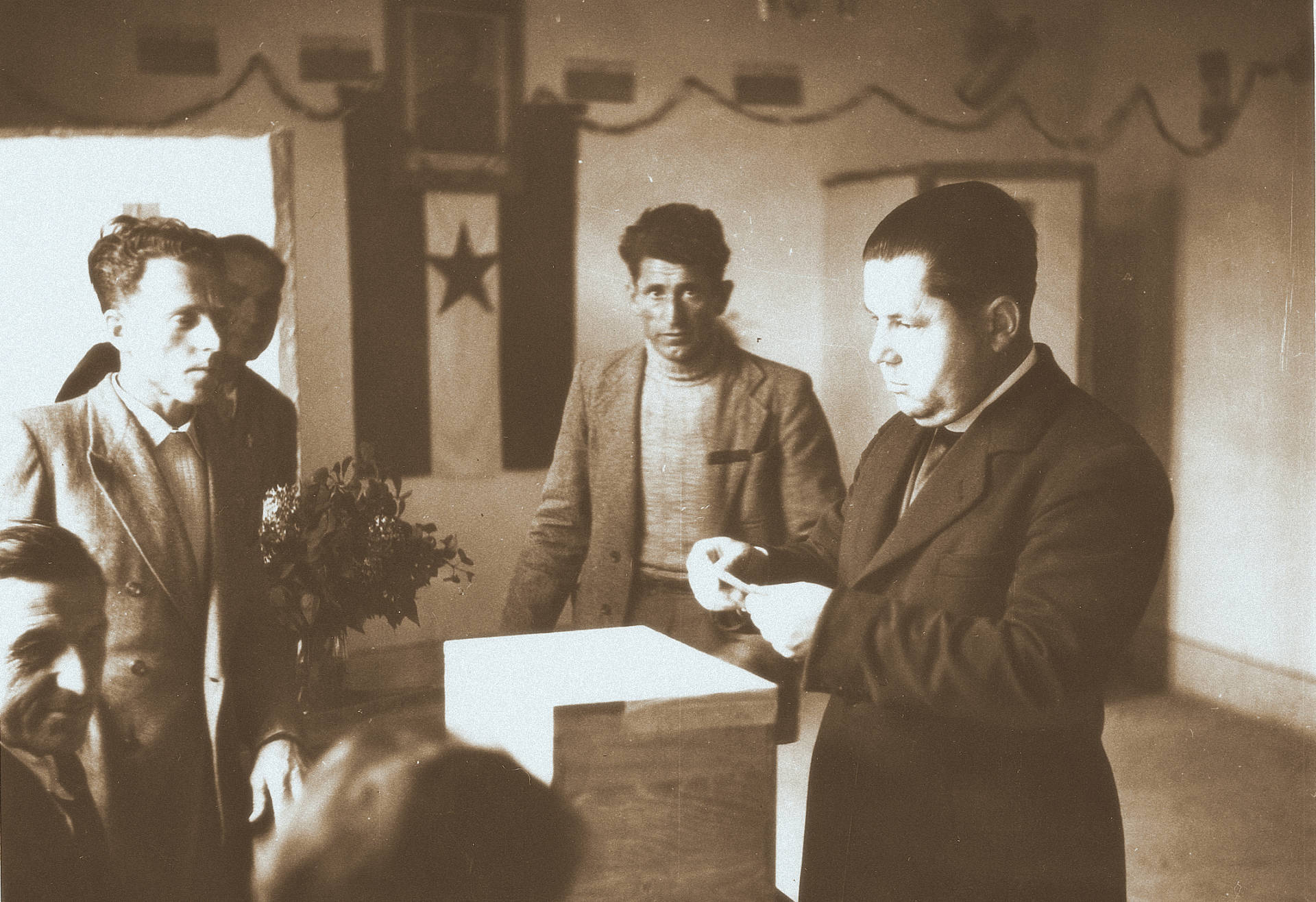 Marezige, 16. april 1950.
Marezige, 16. april 1950.
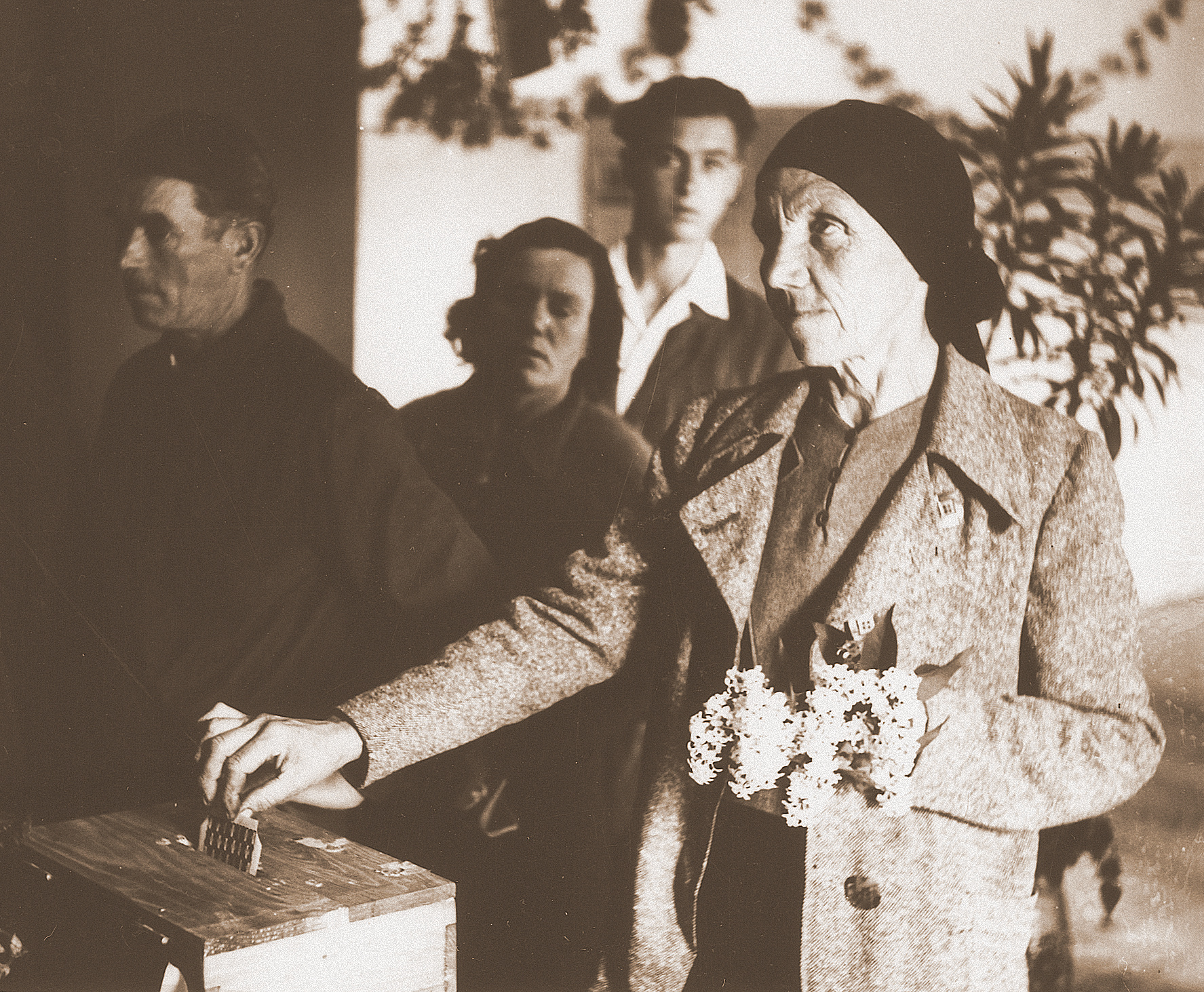 Sv. Anton, 16. april 1950.
Sv. Anton, 16. april 1950.
Immediately after the liberation, the authorities moved quickly to rebuild the area’s Slovene primary schools. The legacy of Fascist policies followed by years of war was disastrous: poor knowledge of the Slovene language, wrecked school buildings and a generalised shortage of equipment and materials. Another major problem was teaching staff, since there was a complete lack of teachers in Slovene Istria. Teachers therefore came from all over Primorska and other parts of Slovenia. Teachers had a very important role in villages: they also had a responsibility for adult education, providing literacy courses and other forms of education, and acted as organisers and leaders of cultural life. In many cases they were also politically active.
By the end of the first academic year, 50 primary schools were operating in the Koper district (as it was at the time), having been opened by spring 1946. Up until 1950, these were schools with a four-year programme and combined classes that included children of different ages. Subsequent changes to organisation and programmes saw the introduction of eight-year combined primary and lower secondary schools alongside the existing primary schools. Six of these had been opened by 1954.
The large number of schools was necessary so that schoolchildren did not have to walk too far to get to them. Even so, children frequently missed school when required to help with farm work, or in winter because of their poor clothing and footwear.
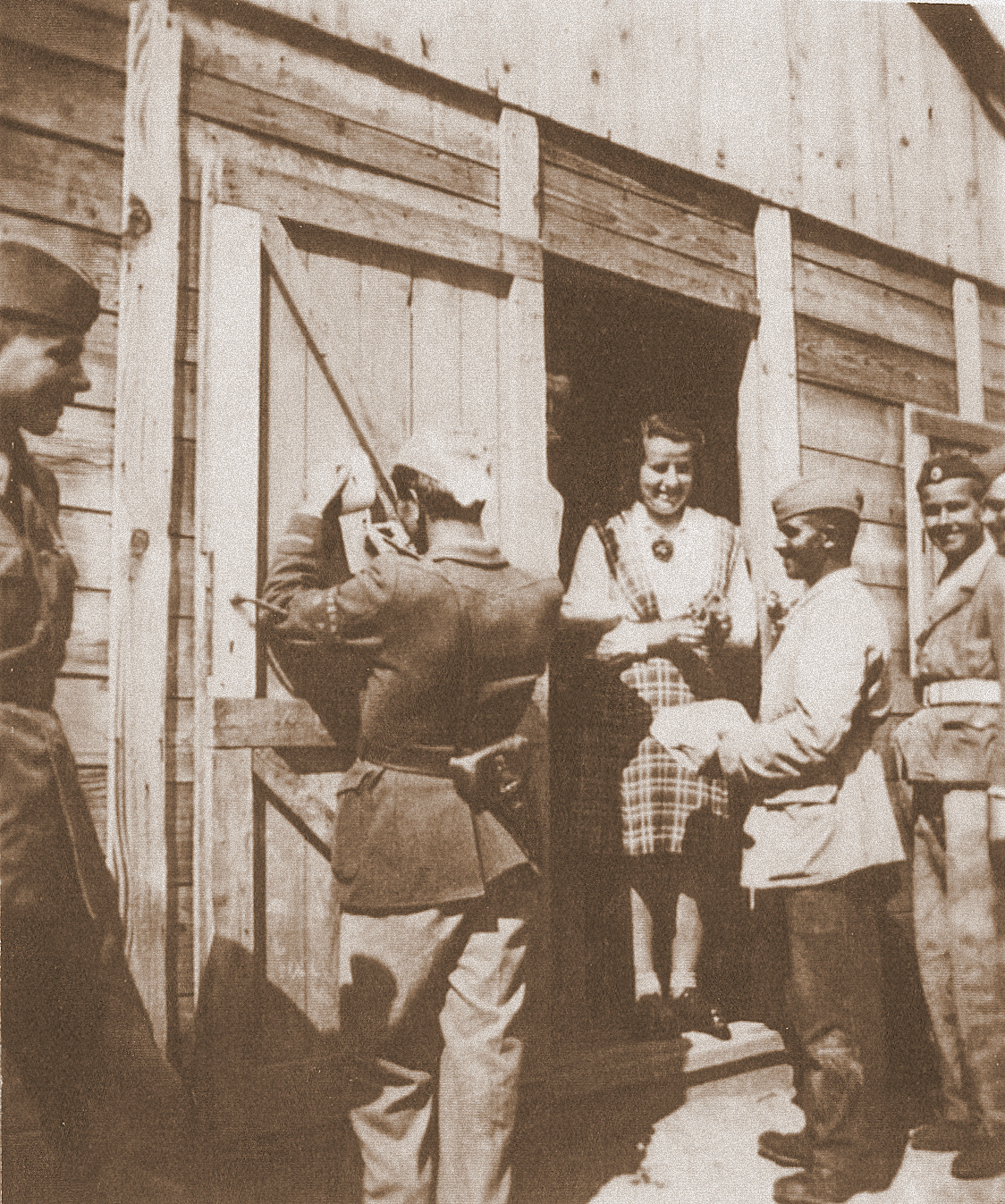 Kubed, 1945 or 1946 – teacher Slavka Čop at the entrance to the hut housing the village school. Five village schools burned during the war were rehoused in temporary huts as soon as the war was over.
Kubed, 1945 or 1946 – teacher Slavka Čop at the entrance to the hut housing the village school. Five village schools burned during the war were rehoused in temporary huts as soon as the war was over.
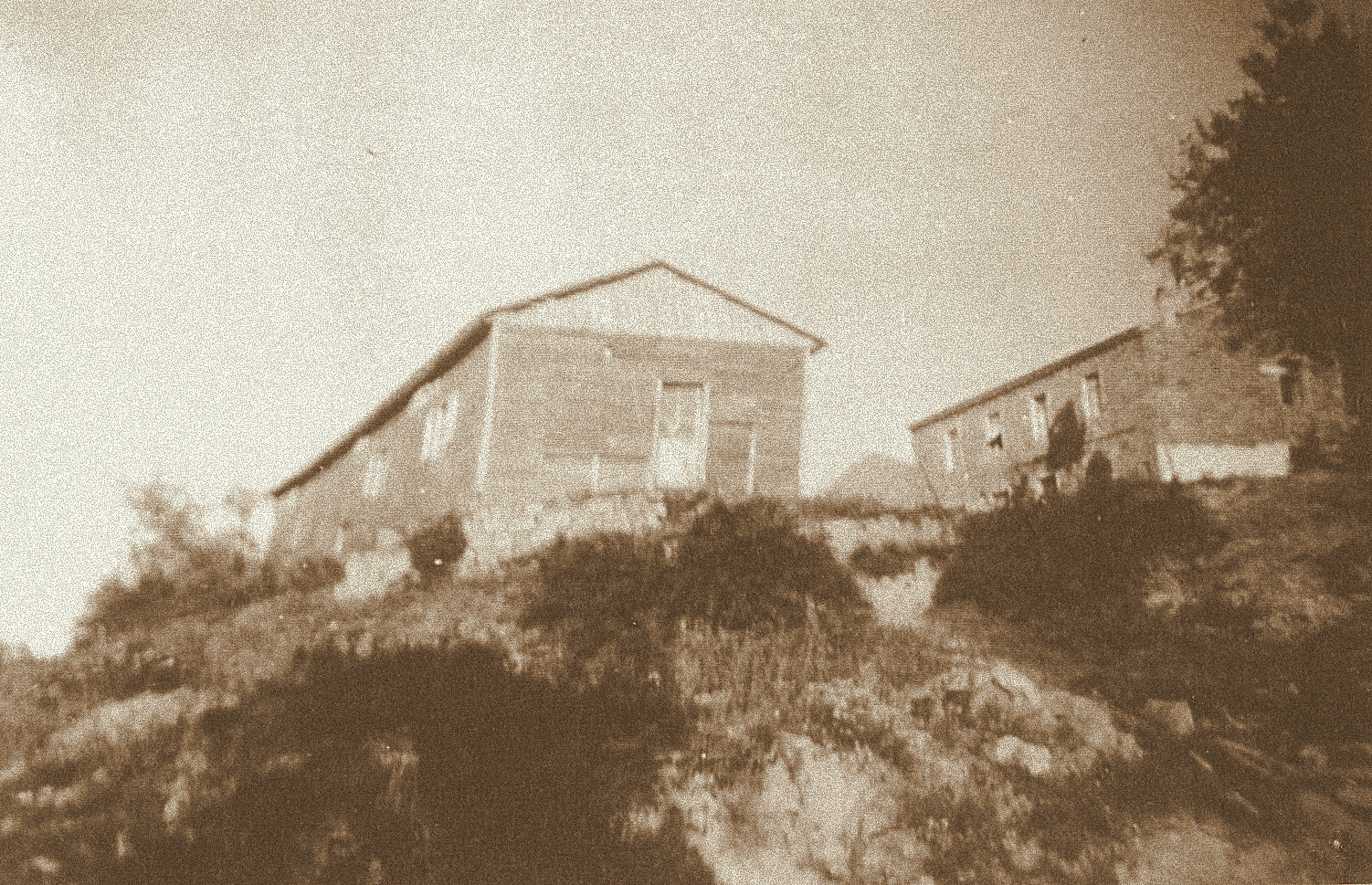 Šmarje, 1946 – school hut.
Šmarje, 1946 – school hut.
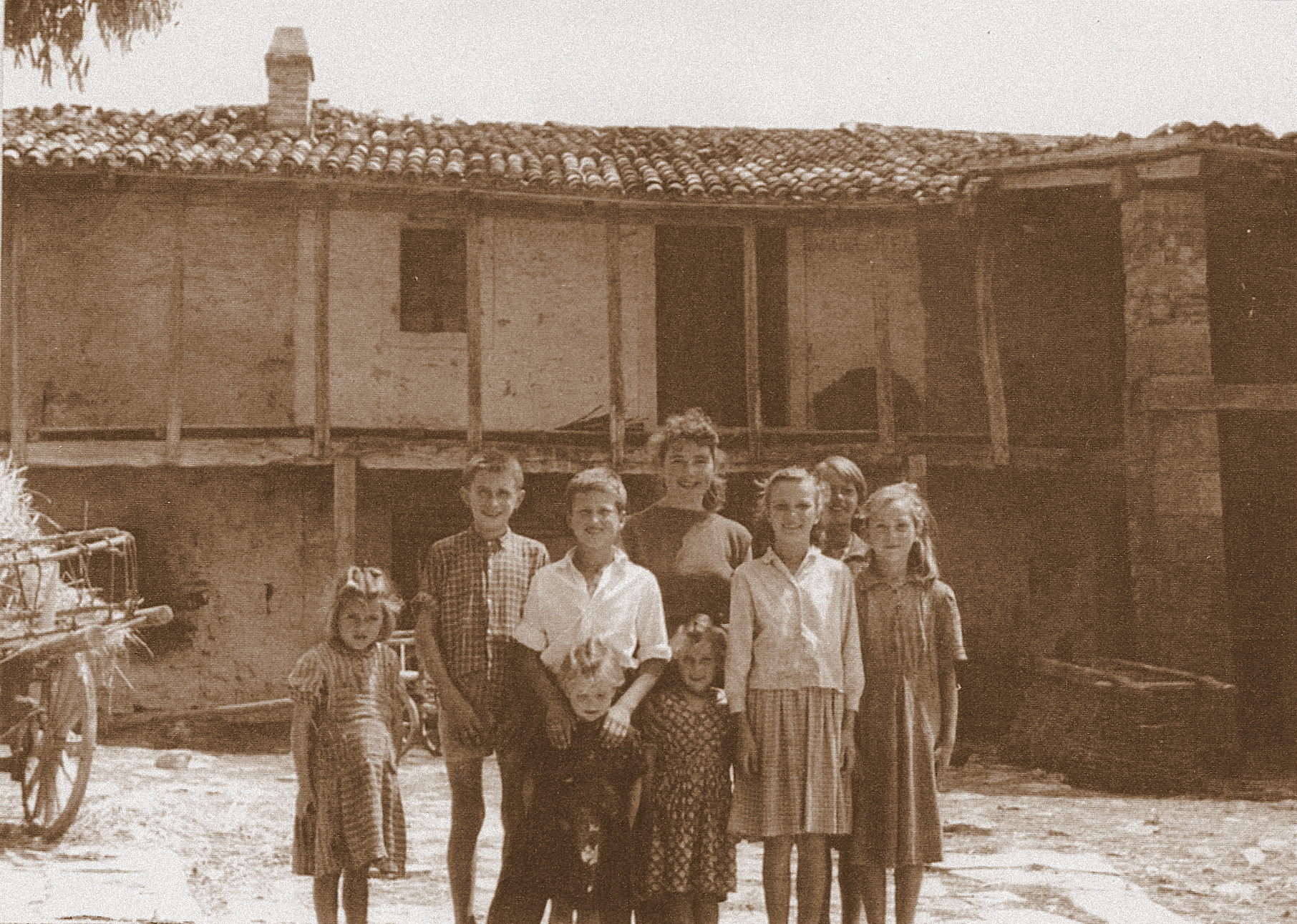 Trsek, 1955. Schools were also accommodated in private houses. Teacher Pavla Brne standing with her pupils in front of the “school” that occupied the ground floor of her house, while she lived upstairs.
Trsek, 1955. Schools were also accommodated in private houses. Teacher Pavla Brne standing with her pupils in front of the “school” that occupied the ground floor of her house, while she lived upstairs.
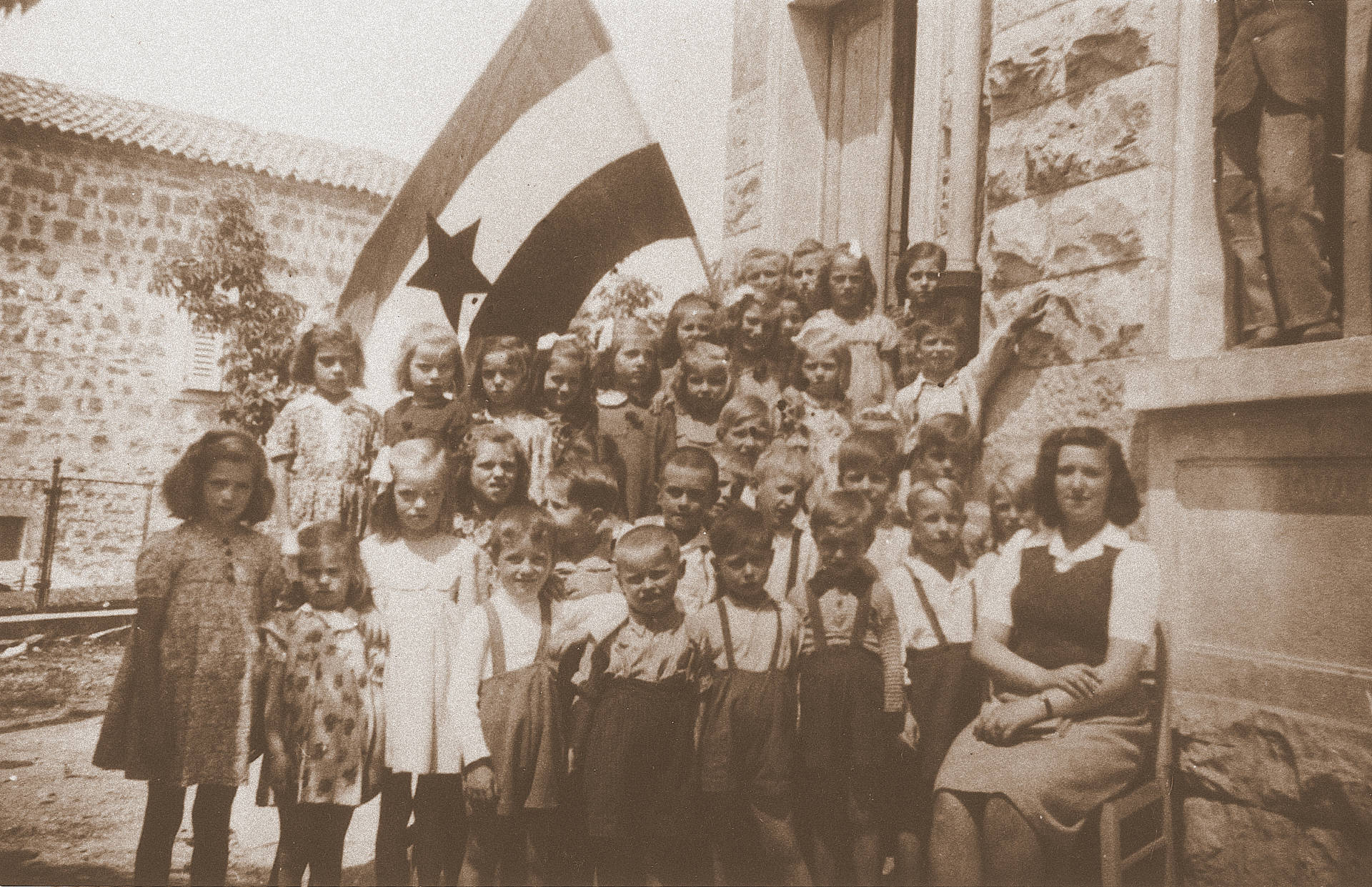 Padna, June 1946 – first- and second-year pupils with their teacher Marija Bole.
Padna, June 1946 – first- and second-year pupils with their teacher Marija Bole.
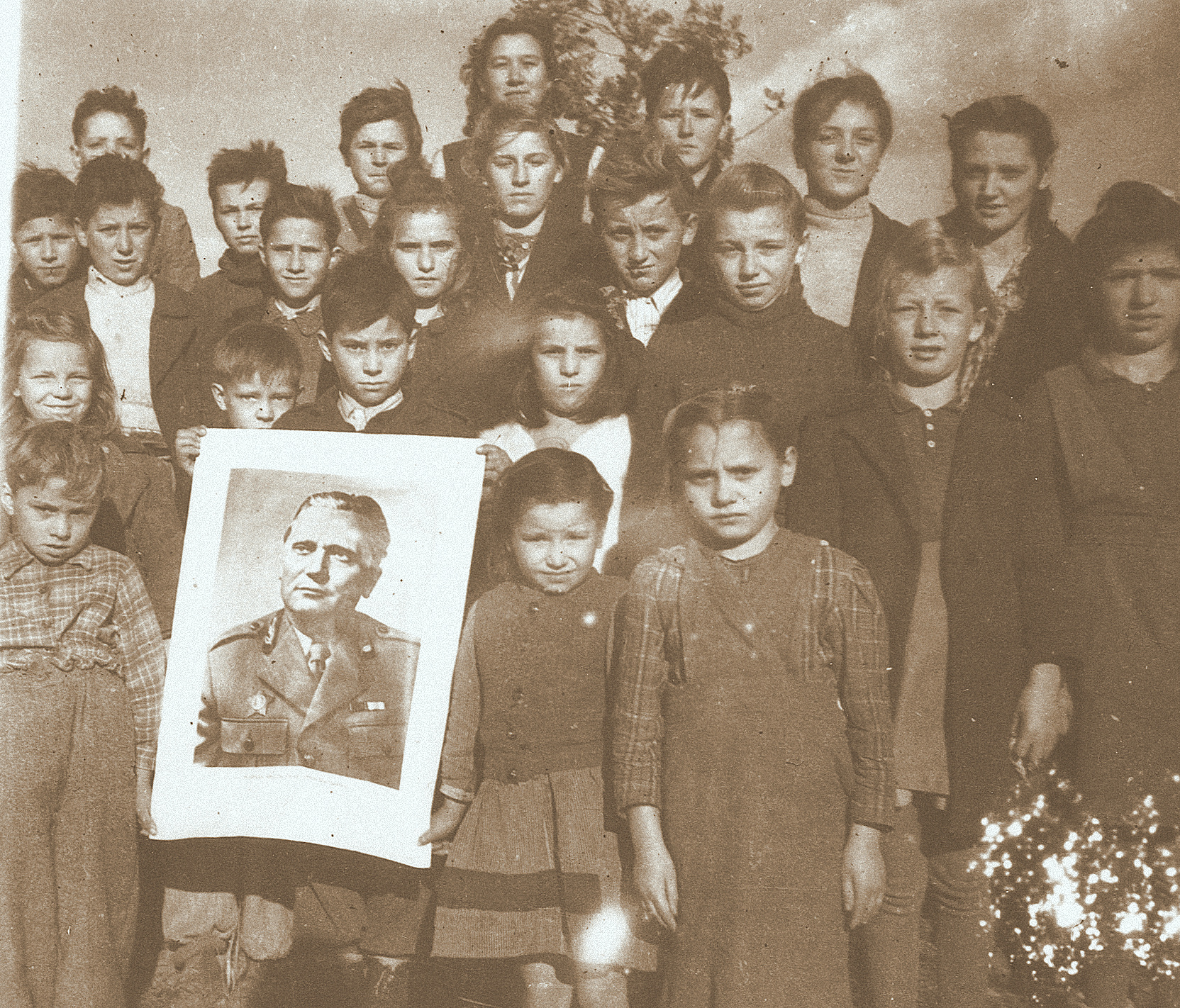 Hrvoji, academic year 1947/48 – pupils with their teacher Tončka Skrinjar.
Hrvoji, academic year 1947/48 – pupils with their teacher Tončka Skrinjar.
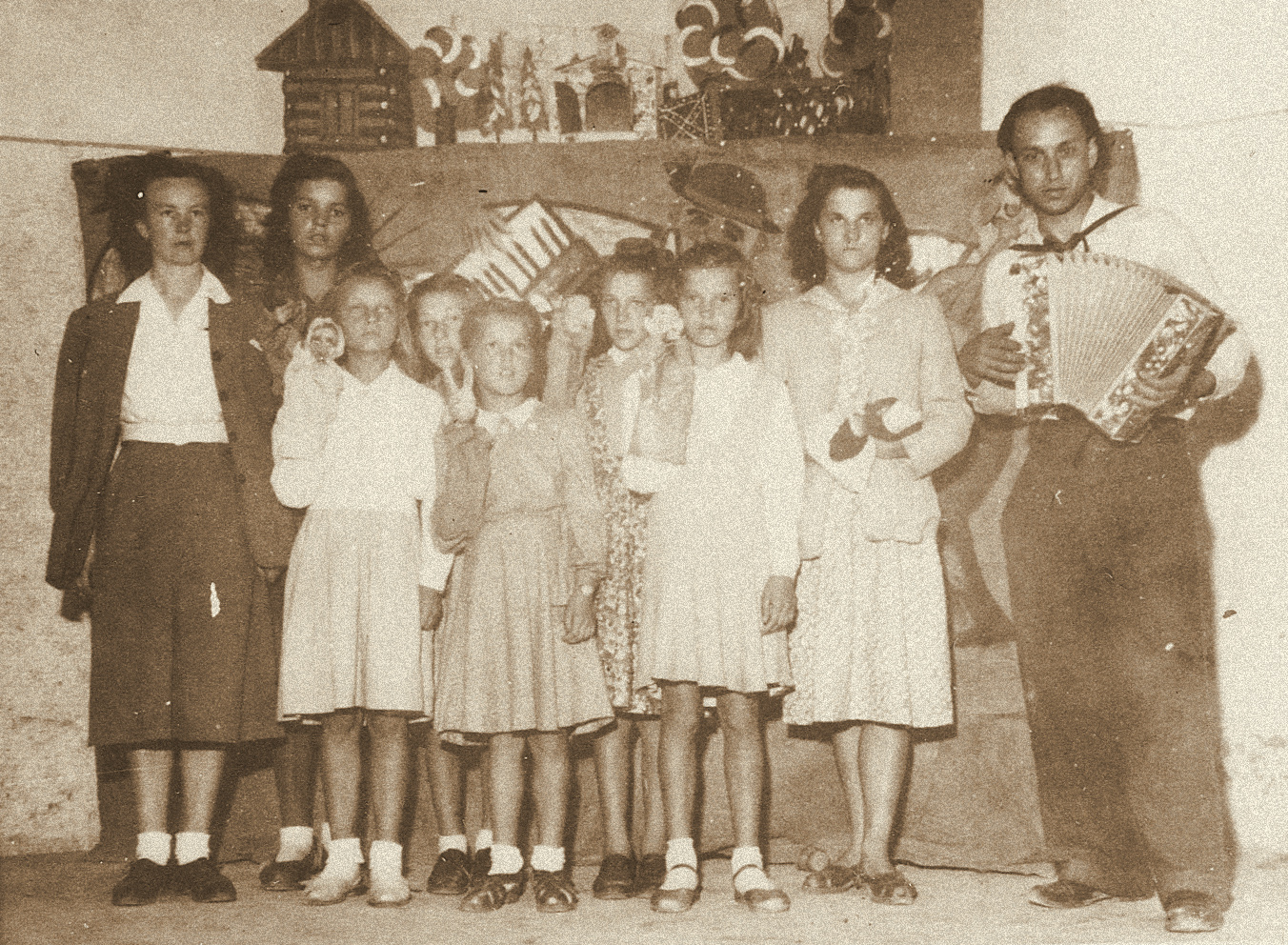 Koper, Maj 1948. Puppet theatre group from the school in Gradin, led by Marijan Malc, performing Hansel and Gretel in the students’ boarding house.
Koper, Maj 1948. Puppet theatre group from the school in Gradin, led by Marijan Malc, performing Hansel and Gretel in the students’ boarding house.
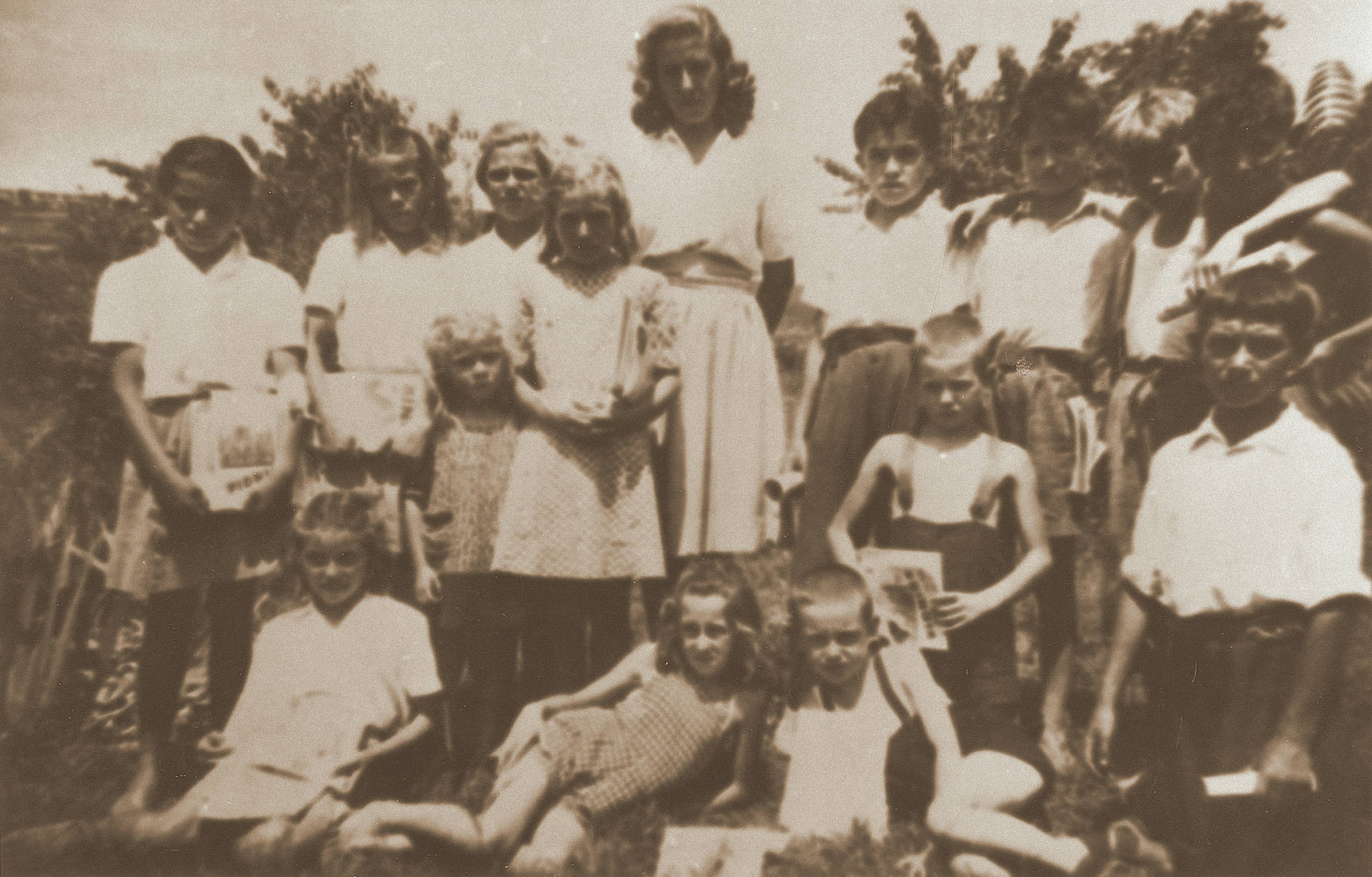 Vanganel, 1948 – pupils with teacher Dostana Mozetič.
Vanganel, 1948 – pupils with teacher Dostana Mozetič.
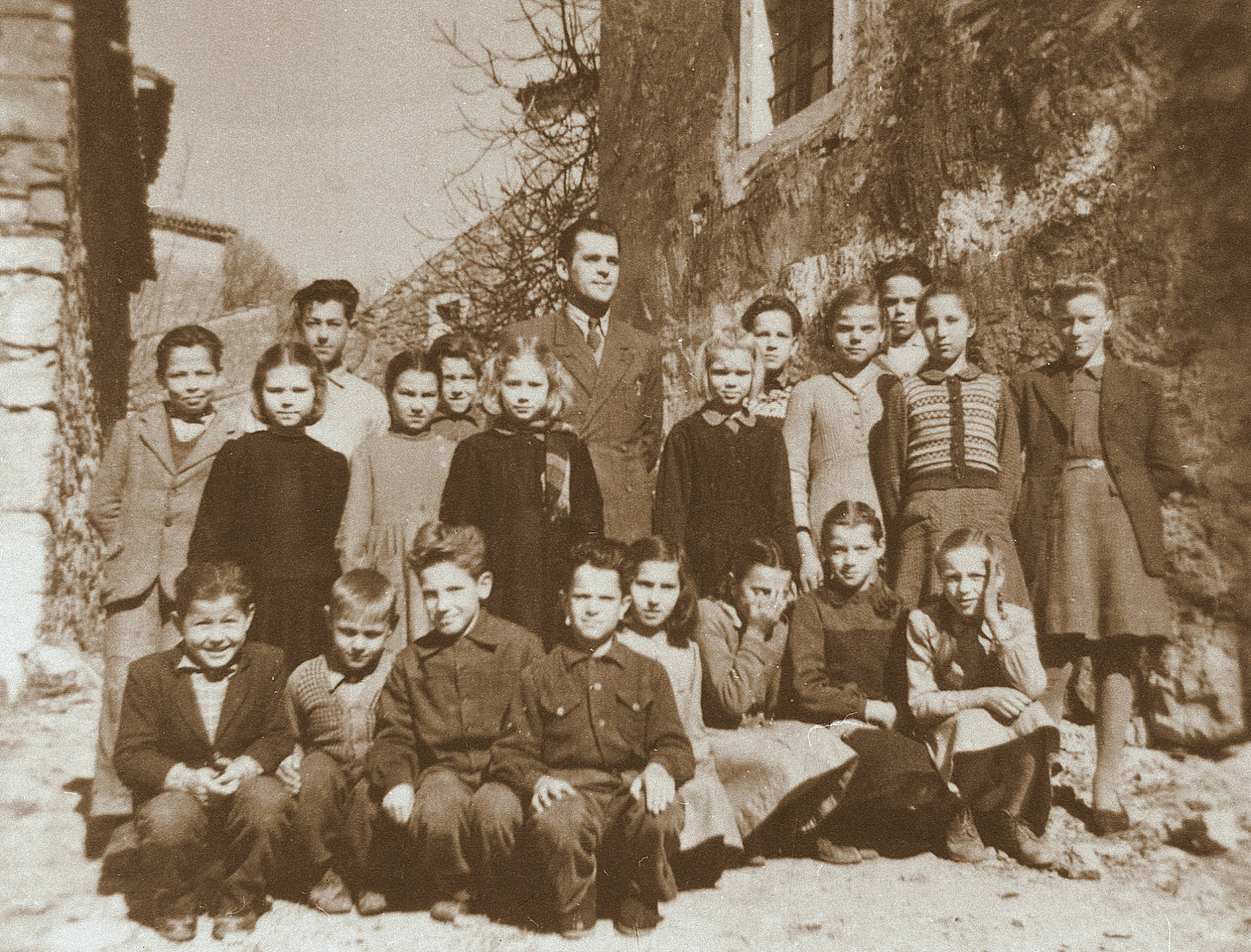 Osp, June 1952 – teacher Stojan Ražem and pupils.
Osp, June 1952 – teacher Stojan Ražem and pupils.
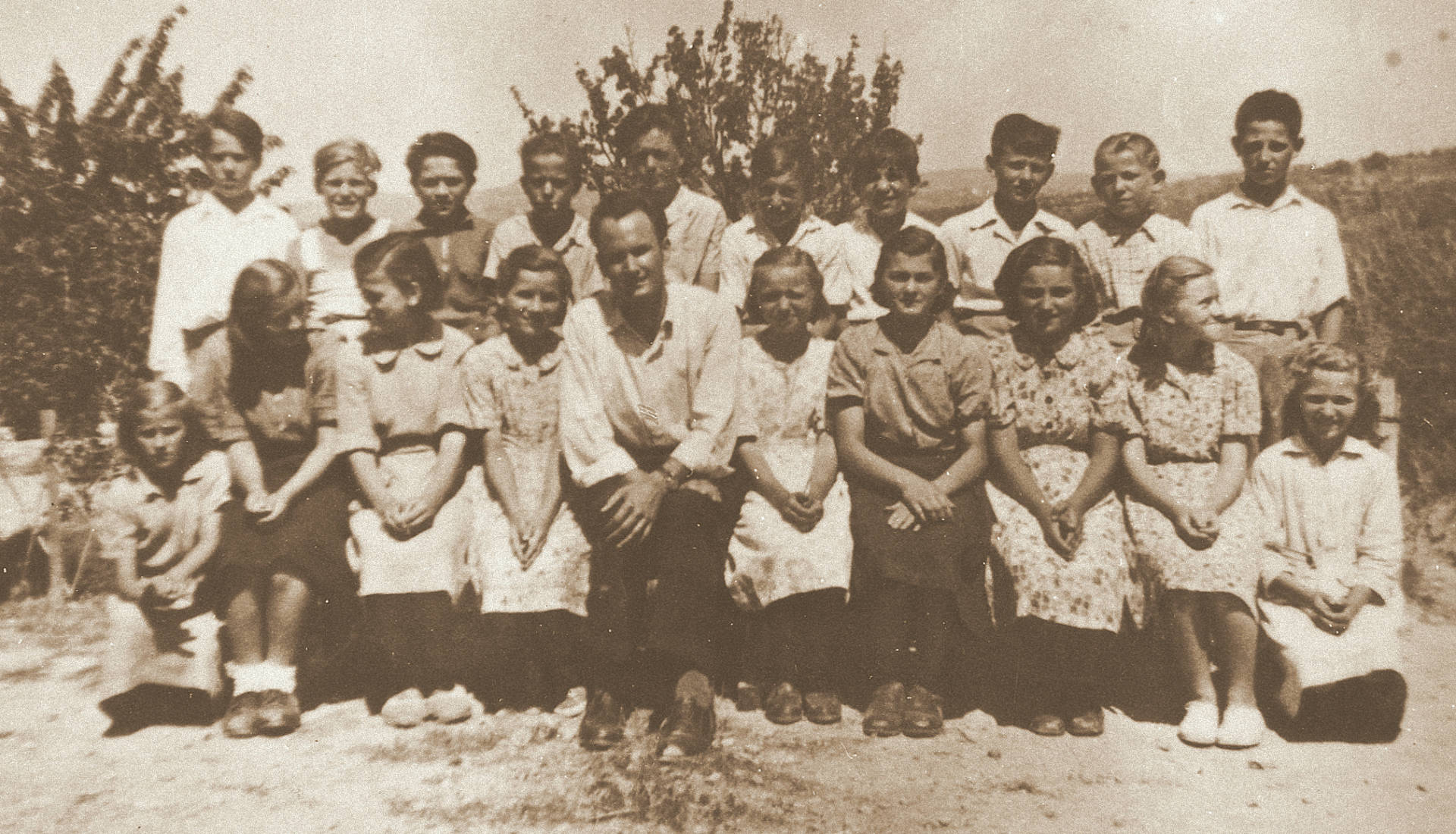 Krkavče, June 1952 – fourth-year pupils with their teacher Milan Marušič.
Krkavče, June 1952 – fourth-year pupils with their teacher Milan Marušič.
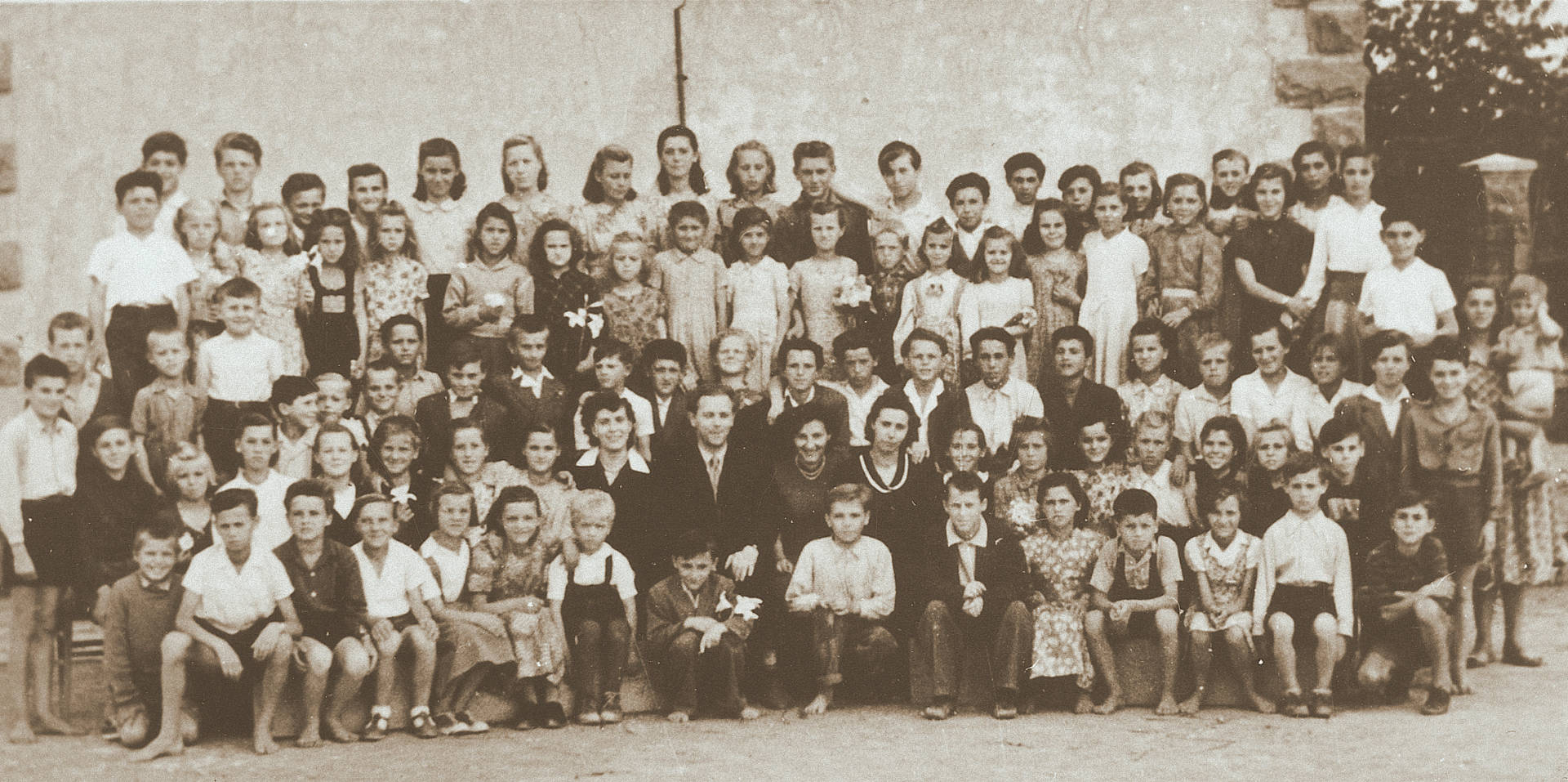 Boršt, June 1953 – pupils of the village school in Boršt with teachers Nada and Vladimir Prinčič and Vilma Badovinac.
Boršt, June 1953 – pupils of the village school in Boršt with teachers Nada and Vladimir Prinčič and Vilma Badovinac.
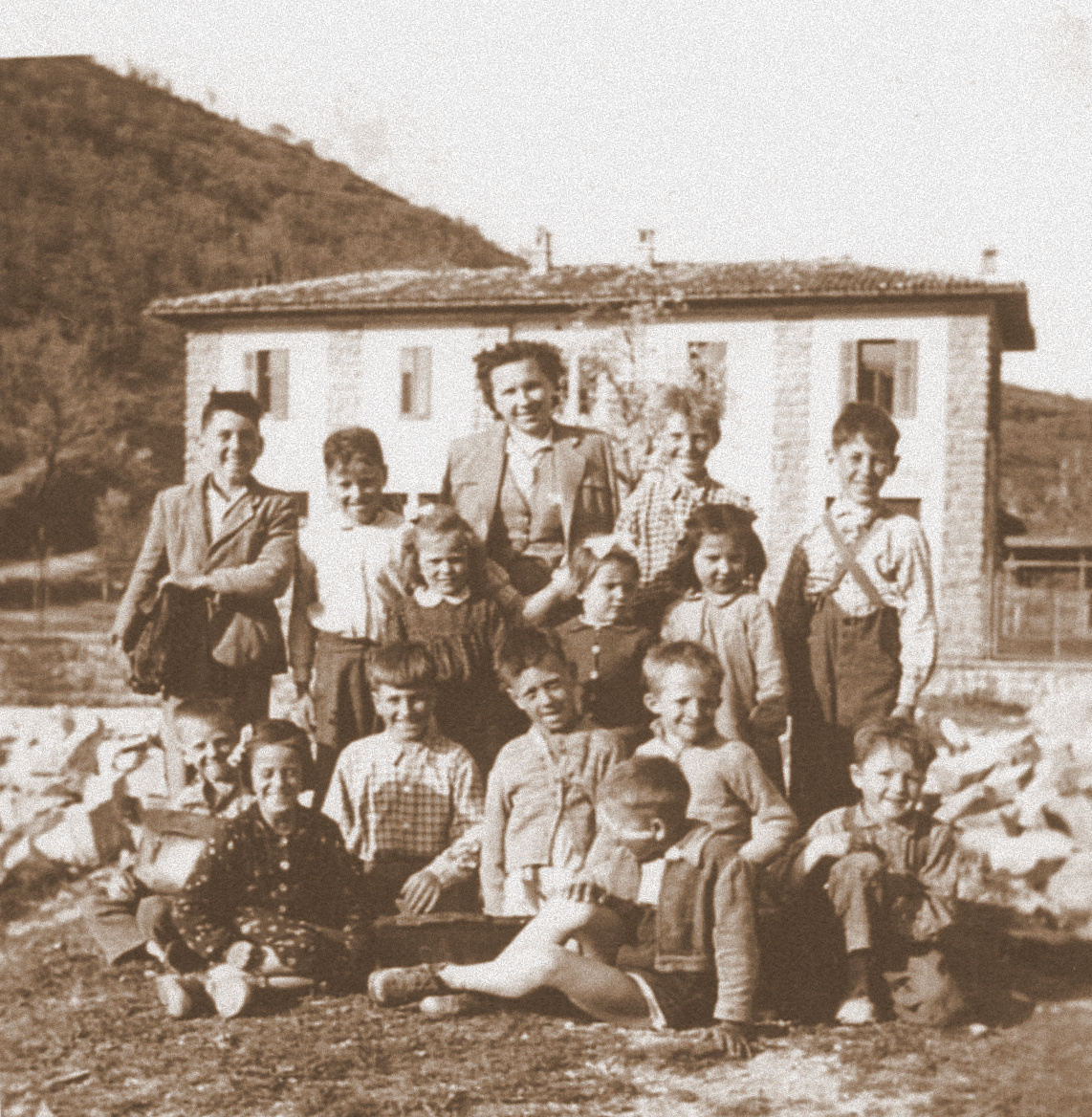 Rižana, 1953 – teacher Marija Valentinčič with pupils.
Rižana, 1953 – teacher Marija Valentinčič with pupils.
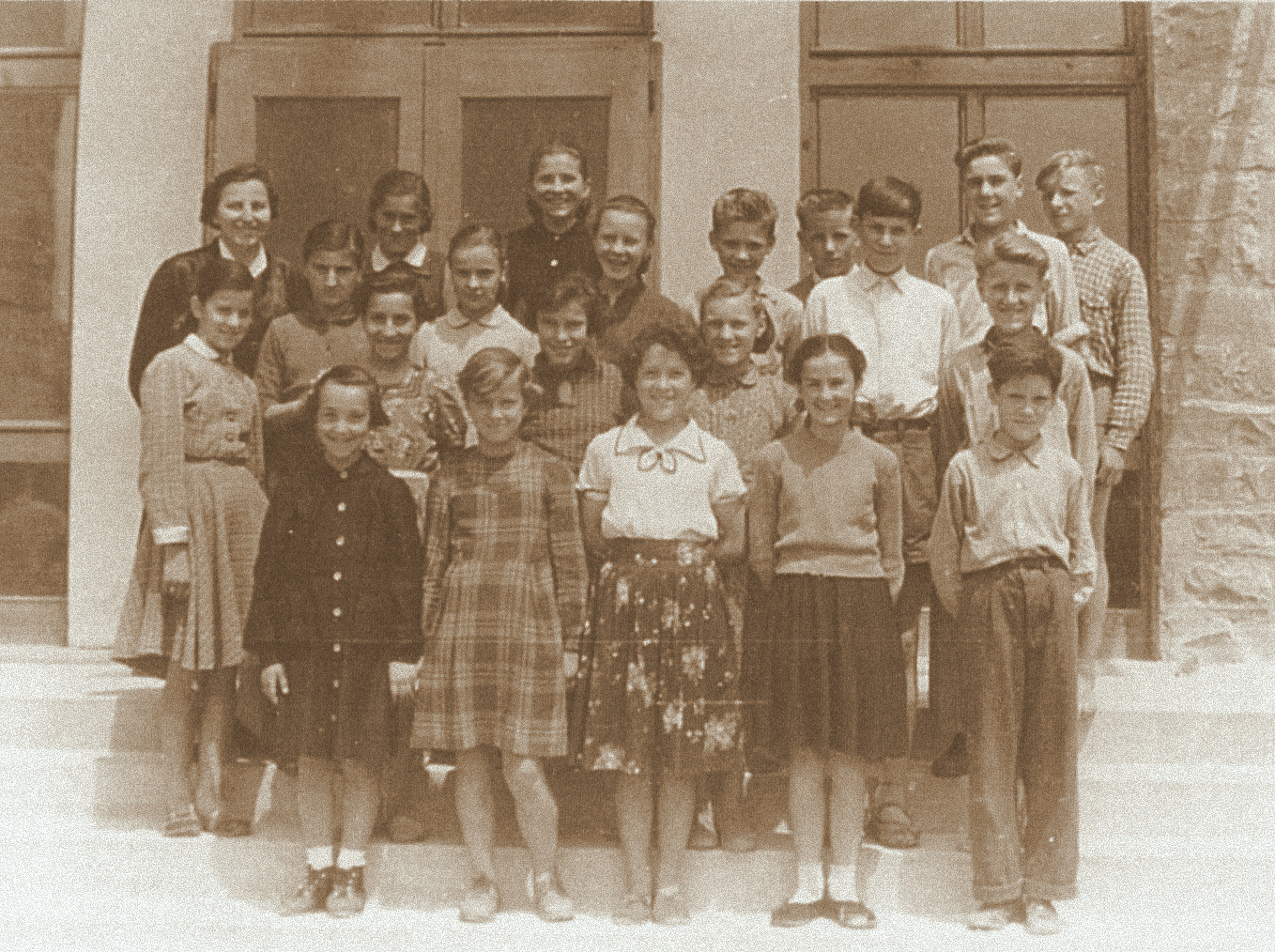 Dekani, 1954 – pupils with teacher Nada Ravbar in front of the new school building.
Dekani, 1954 – pupils with teacher Nada Ravbar in front of the new school building.